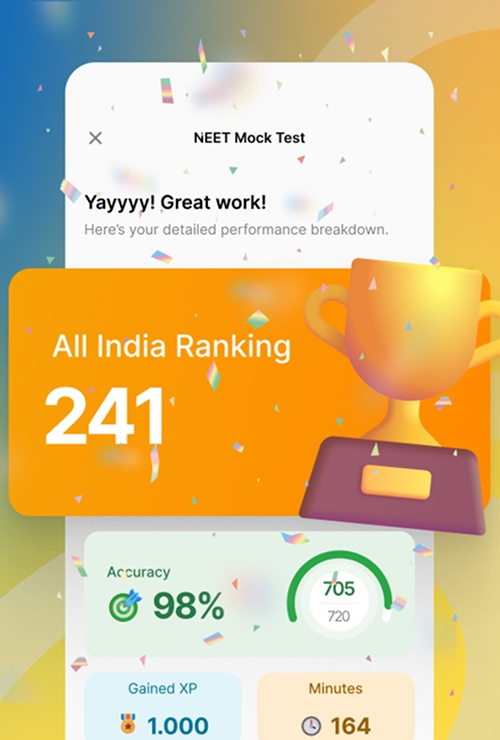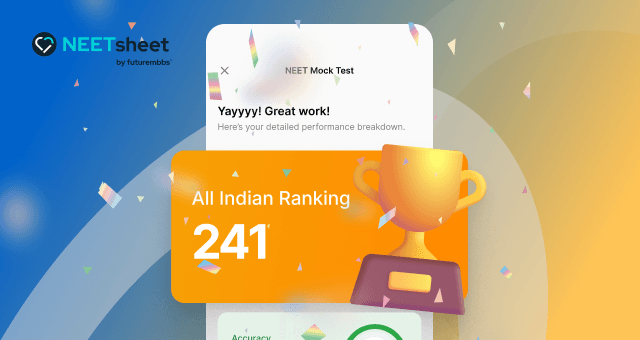
☝️ At a glance
- Clinical careers – Work as a doctor in hospitals (government/private), start private practice, or specialize further with MD/MS.
- Non-clinical roles – Explore hospital administration, medical research, pharmaceuticals, or medical writing without needing a PG degree.
- Alternative paths – Transition into civil services, public health, or healthcare management for diverse opportunities beyond patient care.
- Global opportunities – Work abroad by clearing licensing exams (USMLE/PLAB) or take up research/consulting roles in international healthcare.
Completing an MBBS degree is a significant milestone, but it also marks the beginning of a crucial decision-making phase for medical graduates. With numerous career options available—ranging from clinical practice to non-clinical career options—choosing the right path can be overwhelming.
This guide explore job opportunities after MBBS, alternative medical careers, hospital administration, medical research, and more. Whether you want to specialize further, enter public health, or explore healthcare management, this content strategy provides a structured approach to help you make an informed decision.

Study medicine abroad with 100% support!
futureMBBS offers full support to make your dream of studying medicine abroad a reality.
- Hassle-free admission guidance
- Fast-tracked visa processing
- Post-arrival support, including accommodation assistance
Traditional career paths after MBBS
1.Clinical practice in hospitals
One of the most common choices for MBBS graduates is working as a medical officer or junior doctor in:
Government hospitals (under state or central health services)
Private hospitals (e.g., Apollo Hospitals, Fortis Healthcare)
Medical centres and nursing homes
Roles & responsibilities:
Diagnosing and treating patients
Managing patient care in emergency and OPD settings
Conducting clinical trials and research in collaboration with pharmaceutical companies.
Salary range:
Entry-level: ₹6–7.2 LPA
Senior-level: ₹12–24 LPA .
2. Private practice (General physician or Specialist)
Many MBBS graduates opt for private practice, setting up their own clinics. This offers:
Work-life balance
Financial independence
Flexibility in choosing specialization areas
Key considerations:
Requires registration with the State Medical Council
Additional certifications (e.g., Diploma in Family Medicine) can enhance career growth

Become a global doctor with MBBS abroad!
Studying abroad can be affordable and stress-free with futureMBBS:
- World-recognized universities with English-taught programs
- On-site support in partner university cities
- Guaranteed placements & internships for hands-on experience
From selecting universities and supporting you with the application process to orientation and finding accommodation – we are at your side.
3. Postgraduate specializations (MD/MS/DNB)
Pursuing a postgraduate degree after MBBS is a popular choice for specialization. Some top options include:
Specialization | Duration | Career Prospects | Average Salary (Monthly) |
|---|---|---|---|
MD in Internal Medicine | 3 years | Consultant Physician, Hospitalist | ₹80,000–2,50,000 |
MS in General Surgery | 3 years | Surgeon in hospitals or private practice | ₹1,50,000–4,00,000 |
MD in Radiology | 3 years | Radiologist in diagnostic centres | ₹1,50,000–4,00,000 |
MD in Dermatology | 3 years | Dermatologist, Cosmetic Surgeon | ₹1,00,000–2,50,000 |
Government jobs after MBBS
Government jobs are highly sought-after due to job security, stable income, pension benefits, and opportunities for societal impact. Here’s a detailed look at the top options:
1. Combined medical services (CMS) Exam – Conducted by UPSC
What is CMS?
Conducted by the Union Public Service Commission (UPSC).
Recruits Medical Officers for:
Indian Railways (Railway Hospitals)
Municipal Corporations (e.g., NDMC, Delhi Municipal Health Services)
Armed Forces Medical Services (AFMS) (Short Service Commission)
Central government health scheme (CGHS)
Eligibility criteria
MBBS Degree (must be completed + internship).
Age Limit: Below 32 years (relaxation for SC/ST/OBC).
Nationality: Indian citizen.
Selection process
Written Exam (MCQ-based, covers Medicine, Surgery, Gynecology, etc.).
Interview/Personality Test (for shortlisted candidates).
Salary & benefits
Starting Salary: ₹56,100 – ₹1,77,500 (Level-10, 7th Pay Commission).
Perks:
Government accommodation (or HRA).
Travel allowances, pension, and healthcare benefits.
2. Armed Forces Medical Services (AFMS) – Army, Navy, Air Force
What is AFMS?
MBBS doctors can join the Indian Army, Navy, or Air Force as Medical Officers.
Two Entry Routes:
Permanent Commission (PC) – Lifelong service (through NEET-SS/AFMC PG).
Short Service Commission (SSC) – 5+5 years (extendable).
Eligibility criteria
MBBS + Internship completion.
Age Limit:
SSC: Below 32 years.
PC: Varies (usually up to 30 years).
Physical & medical standards (must pass fitness tests).
Selection process
Online application
Interview (AFMSB Board) – Tests medical knowledge & personality.
Merit list & joining.
Salary & benefits
Starting salary (SSC): ₹80,000 – ₹1,00,000/month (including allowances).
Perks:
Free accommodation, ration, insurance.
Post-retirement benefits (pension for PC officers).
Career growth
Promotions:
Captain → Major → Lt. Colonel → Colonel → Brigadier (based on experience).
Specialization: Can pursue PG (MD/MS) through AFMC Pune.
3. State health services – General Duty Medical Officer (GDMO)
What is state health services?
Recruitment by State Public Service Commissions (PSCs) for:
District hospitals
Primary health centers (PHCs)
Community health centers (CHCs)
Eligibility criteria
MBBS + registration with State Medical Council.
Age limit: Varies by state (usually 18-40 years).
Selection process
State PSC exam (e.g., MPPSC, UPPSC, TNPSC).
Interview/Direct recruitment (some states hire via walk-in interviews).
Salary & benefits
Starting Salary: ₹50,000 – ₹80,000/month (varies by state).
Perks:
Government housing (or HRA).
Pension, healthcare, and job stability.
Career growth
Promotions:
GDMO → Senior Medical Officer → Chief Medical Officer (CMO).
PG opportunities: Can pursue MD/MS while working (study leave available).
Diploma & certification courses after MBBS
Short-term diploma courses provide specialized skills without long-term commitments.
PG Diploma courses
PG Diploma in Clinical Pathology, Occupational Health, or Emergency Medicine.
Fellowship programs
Fellowship in Diabetes, Critical Care, or Sports Medicine
Pursuing medical doctor jobs abroad after MBBS
For MBBS graduates, working as a doctor abroad offers global exposure, higher salaries, and advanced healthcare systems. However, securing a medical license in a foreign country requires clearing specific licensing exams and meeting eligibility criteria. Below are key pathways and opportunities for practicing medicine internationally:
1. Licensing exams for practicing abroad
To work as a doctor in countries like the USA, UK, Australia, or Canada, MBBS graduates must pass:
USMLE (United States) – A 3-step exam for residency and medical practice.
PLAB (UK) – A 2-part test assessing clinical skills and language proficiency.
AMC (Australia) – Includes written and clinical assessments for medical registration.
MCCQE (Canada) – Required for medical licensure in Canada.
2. Residency & specialization opportunities
Many countries offer residency programs for foreign medical graduates:
USA: After clearing USMLE Steps 1 & 2, graduates can apply for residency via the NRMP Match.
UK: Completing PLAB allows doctors to enter NHS training programs.
Germany: Requires language proficiency (B2/C1 German) and recognition of medical qualifications.
3. Job prospects & salary expectations
USA: Average salary for resident doctors starts at $60,000–$70,000, increasing post-residency.
UK: Junior doctors earn £29,000–£48,000, with higher pay in specialized roles.
Middle East (UAE, Saudi Arabia): Doctors earn $70,000–$120,000 tax-free, with benefits like housing .
4. Alternative routes: Medical volunteering & internships
Gaining international experience through programs like:
IVHQ Medical Volunteering – Work in clinics across Africa, Asia, Latin America .
Doctors Without Borders – Provides emergency medical roles in conflict zones.
5. Challenges & considerations
Language barriers (e.g., German for Germany, French for Canada).
Visa & work permit requirements.
Recognition of foreign MBBS degrees (e.g., FMGE/NExT for India)
Alternative career paths after MBBS
Not all MBBS graduates want to continue in clinical practice. Several non-clinical career options offer lucrative opportunities.
1. Hospital and healthcare administration
MBA in Hospital Management or MHA (Master of Hospital Administration) prepares doctors for leadership roles in healthcare facilities.
Career Prospects: Hospital CEO, healthcare consultant, or medical administrator.
2. Public health & epidemiology
MPH (Master of Public Health) focuses on health promotion, disease control, and policy-making.
Job Roles: Work with WHO, UNICEF, or government agencies.
4. Clinical research & pharmaceutical industry
Clinical research involves drug trials and regulatory compliance.
Job Roles: Medical researcher, clinical trial manager in pharmaceutical companies.
5. Medical legal & forensic medicine
Forensic experts assist in criminal investigations.
Courses: Diploma in Forensic Medicine.
Emerging career paths for MBBS graduates
1. Medical writing & content creation
Writing research papers, health blogs, or medical journals
Working with healthcare organizations as a medical writer
Skills Needed:
Strong research and writing abilities.
2. Entrepreneurship in healthcare
Starting telemedicine platforms
Launching health-tech startups
Managing specialty clinics
Success Factors:
Business acumen
Networking with healthcare professionals
Conclusion
The career options after MBBS are diverse, ranging from clinical practice to healthcare management, research, and entrepreneurship. Whether you choose to work in government hospitals, private healthcare, or non-clinical fields, your medical expertise will always be in demand. Evaluate your interests, skills, and long-term goals to make an informed decision.
For further guidance, explore postgraduate courses, fellowships, and certifications to enhance your career growth in the healthcare sector.
Thinking of pursuing MBBS abroad? Don’t just dream it, do it!Your medical career abroad starts here!







